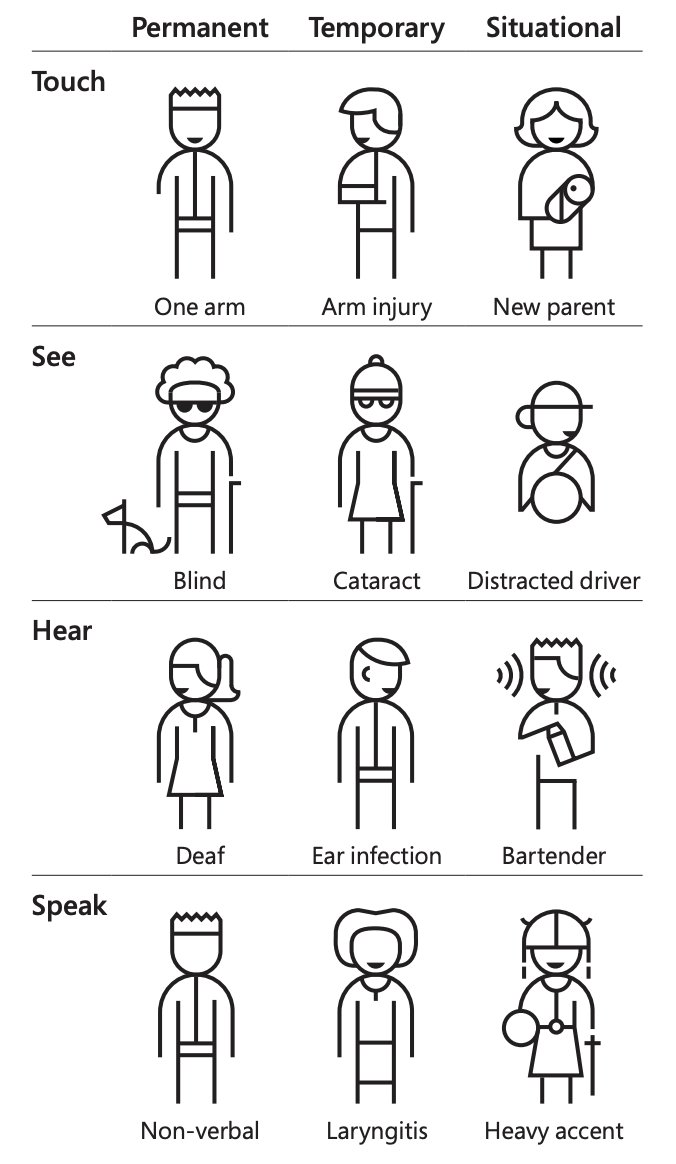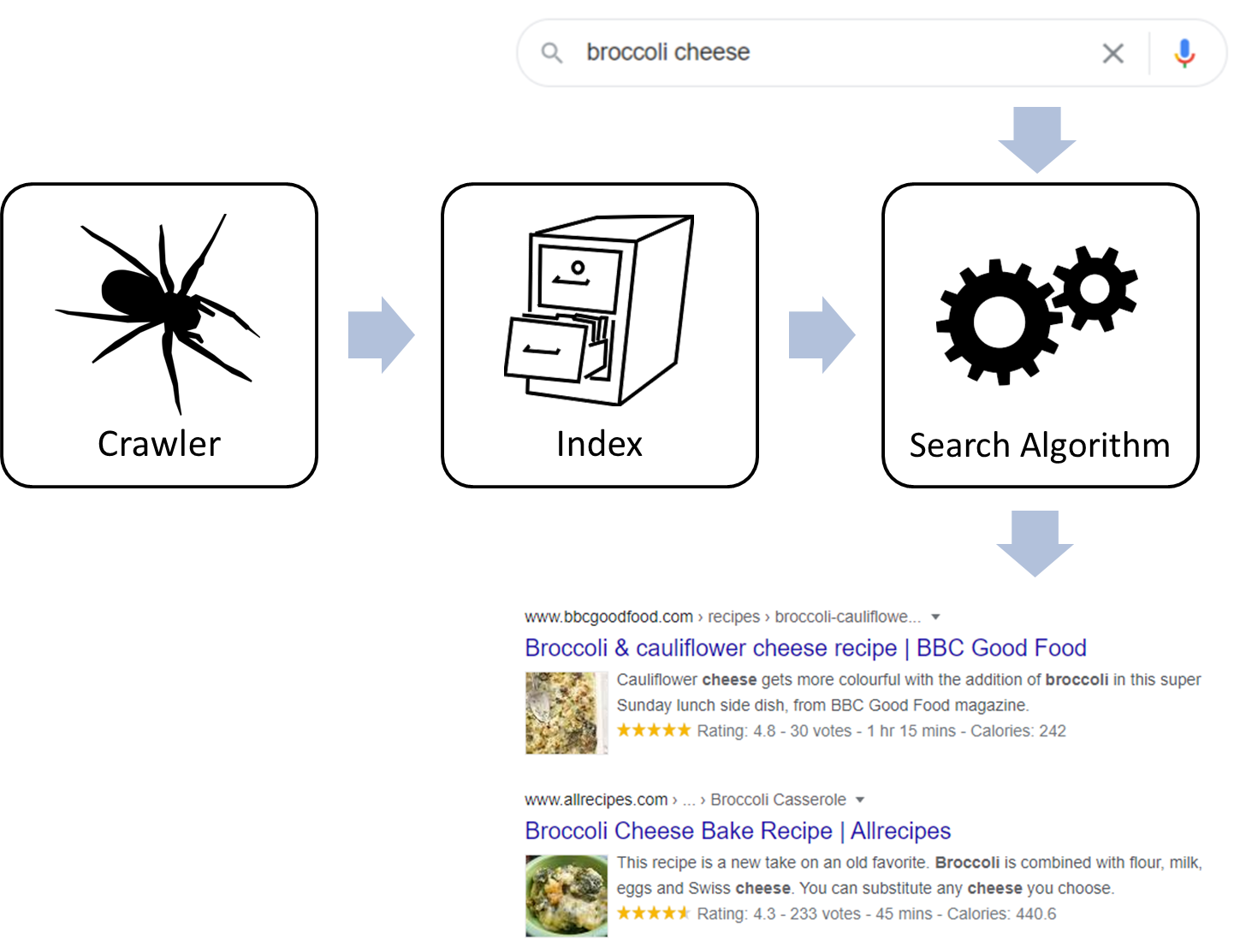Web Development
Dr Derek BridgeSchool of Computer Science & Information Technology
University College Cork
Lecture Objectives
- reflect on the different goals of different users
- learn about design-for-all
- appreciate some of the challenges
Careers
| web developer | front-end web developer |
| full-stack developer | |
| UI designer (UI = user interface) | |
| UX designer (UX = user experience) | |
| graphics designer | |
| … | |
| web server administrator | dev ops |
| network administrator | |
| database administrator | |
| … |
Different goals
A user who visits a web site does so for a reason, e.g.:
- to buy something
- to sell something
- to find a piece of information
- to make a social connection
- to overcome boredom
The UCC web site
Different users may have different goals
Consider users of the UCC web site, e.g.:
- journalists
- researchers in other organizations
- employers
- prospective students
- current students
- former students
- government
Design-for-All
Can everyone easily achieve their goals?
Web Sites Should Be Usable…
- …no matter who is visiting them
- people with visual, auditory, physical, speech, cognitive, and neurological disabilities
- people whose capabilities are modified by a medical condition
- people of different ages
- people with different first languages

Web Sites Should Be Usable…
- …no matter when users visit and where they are
- whether stationary or on the move
- no matter the environmental conditions (bright/dark, quiet/noisy)
- no matter where in the world (developed/developing, rural/urban, …)


Web Sites Should Be Usable…
- …no matter what network connection, device or client software visitors are using
- connections of different bandwidths and speeds (cable, wireless, mobile, …)
- different screens (resolution, dimensions, colour)
- different I/O modalities (keyboard/ mouse/ stylus/ touchpad/ touchscreen/ speech for input; screen/ print/ speech & other audio/ etc. for output)
- different web browsers, different versions of browsers, different OS, client software other than browsers

Web Sites Should Be Usable…
- …now and in the future
Simple Advice
Don't assume anything!
Example Challenges
We'll look at some examples of the challenges we face.
(Not exhaustive and not in depth)
Visually-Impaired Users
a regular browser or special browser
+
a screen reader,
which sends the information from the web page to a speech synthesizer
Solution
Information conveyed exclusively in images is inaccessible to these users
Where images convey info, we must always provide an alternative
Different Screen/Window Sizes
Fixed-width layouts (based on pixels) work only for a handful of devices
Solution
Instead, use liquid layouts (based on percentages)
And, better still, use responsive web design (which adapt to the dimensions)
Serving Media Over Slow Connections
Typically, images in web pages are external resources
— stored separately, in their own files, and
fetched separately
Image files are often large
Solution
Reduce! Reduce! Reduce!
Can you eliminate images?
Can you merge images?
Can you compress images?
Browsers Are Not The Only Clients!
| harmful | beneficial |
|---|---|
| email harvesters | search engine crawlers |
Email Harvesters
list_of_urls = [www.example.org]
list_of_emails = []
while list_of_urls is not empty:
remove a URL from list_of_urls
send HTTP GET request to the URL
receive HTTP response
find all email addresses within the response
insert the email addresses into list_of_emails
find all hyperlinks within the response
insert the URLs of the hyperlinks into list_of_urls
Now sell the list of email addresses to spammers!
Web Search Engines

Indexes
| brocolli | p.2, p.17, … |
| carrots | p.2, p.112, … |
| cheese | p.6, p.17, p.28, … |
| brocolli | URLs of pages mentioning brocolli |
| carrots | URLs of pages mentioning carrots |
| cheese | URLs of pages mentioning cheese |
Search Engine Crawlers
list_of_urls = [www.example.org]
while list_of_urls is not empty:
remove a URL from list_of_urls
send HTTP GET request to the URL
receive HTTP response
find all important words within the response
for each important word:
in the index entry for that word, insert the URL
find all hyperlinks within the response
insert the URLs of the hyperlinks into list_of_urls
Solutions
Disguise email addresses to make life difficult for email harvesters
Make it obvious what a web page is about to make life easier for search engine crawlers